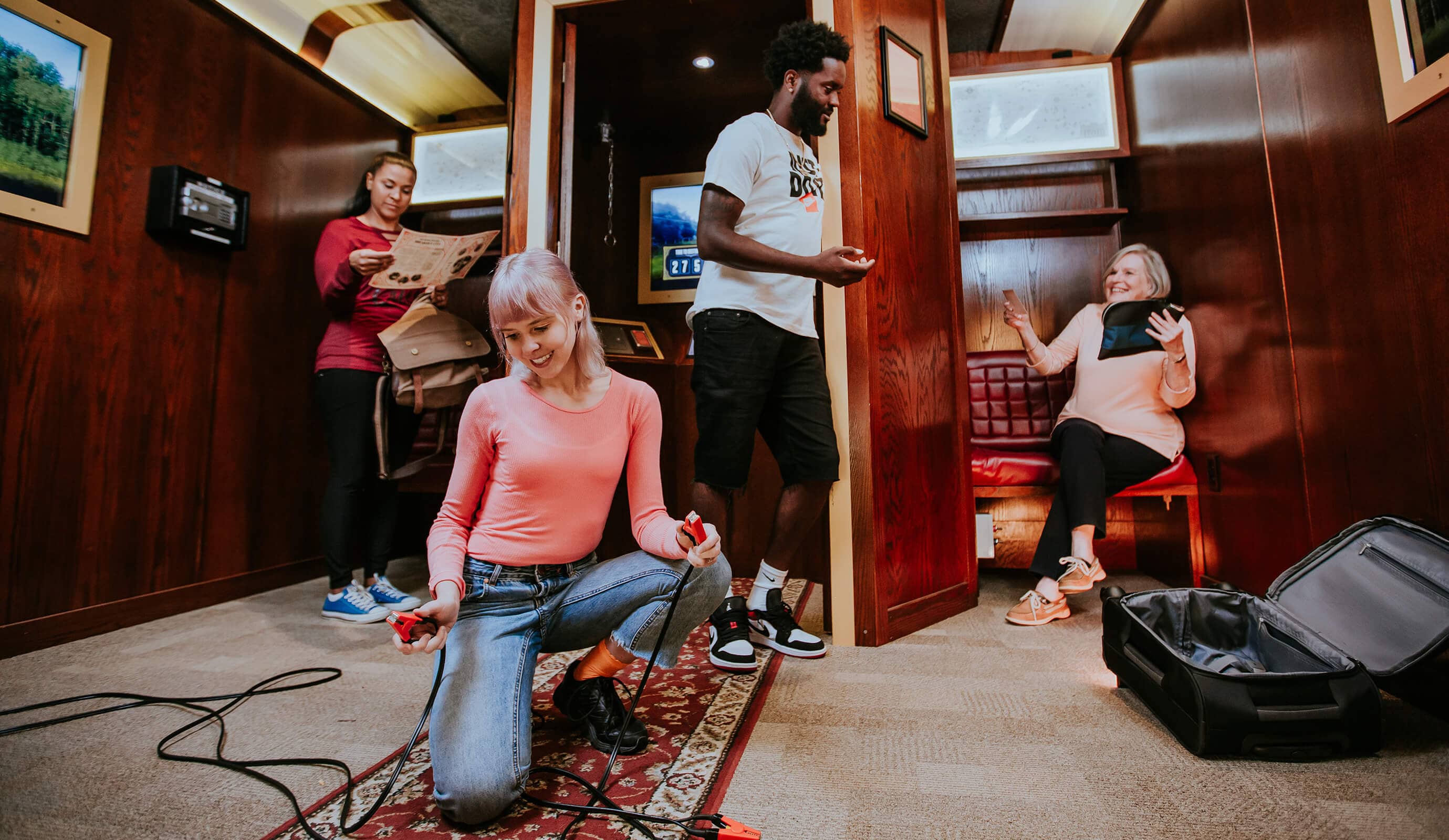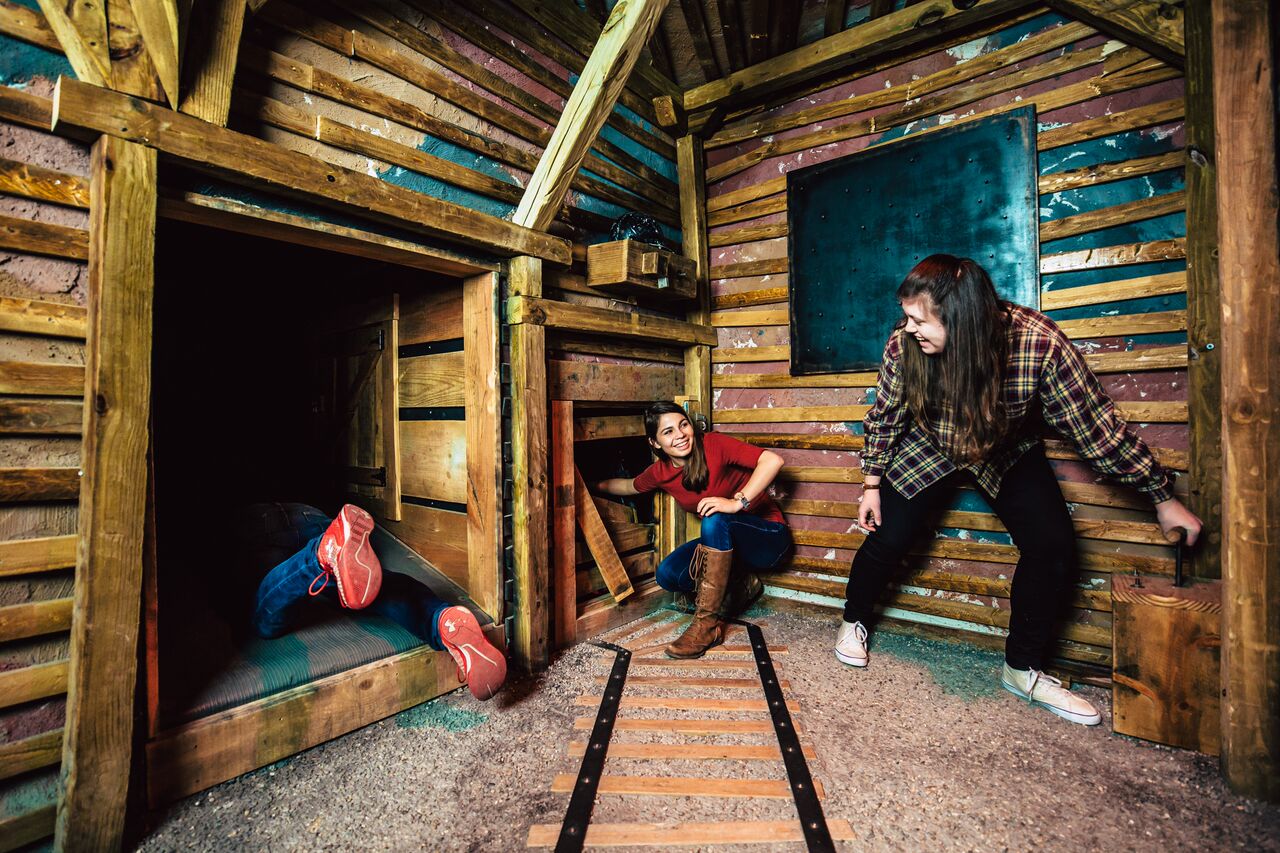Best Escape Room-- Test Your Skills and Address the Secret
Group Techniques: Exactly How to Team up Successfully in a Retreat Area
Browsing the complexities of an escape space demands even more than simple enthusiasm; it needs a well-coordinated technique based in clear communication, strategic role projects, and experienced time administration. Teams must actively listen to every participant's insights, designate roles that align with specific staminas, and keep regular check-ins to guarantee emphasis and prevent redundancy. By promoting a setting that values cohesion and adaptability, teams can considerably heighten their efficiency and success prices. The subtleties of these strategies can transform the experience, however just how precisely can they be implemented to make best use of the potential for success?
Establish Clear Communication

To help with clear interaction, it is important to mark a central factor of get in touch with for information circulation. Quick, concentrated updates from each team member can keep the team informed without frustrating them with info.

Appoint Roles Strategically
While clear interaction establishes the structure for efficient synergy, appointing roles strategically makes certain that each employee's staminas are made use of successfully. In a retreat area circumstance, the time-sensitive and intricate nature of obstacles demands an efficient technique to job delegation. By identifying and leveraging private competencies, teams can optimize their problem-solving capabilities and improve overall performance.
First, assess the special skills and attributes of each participant. Someone with a keen eye for detail might succeed in locating hidden objects, while a rational thinker could be better suited to fixing problems. It's similarly important to have a leader that can supervise development, handle the timeline, and make definitive phone calls when essential. This role typically calls for strong organizational and interpersonal skills.
Second, guarantee that duties are adaptable and versatile. As new difficulties emerge, the team must have the ability to pivot, reapportioning tasks as needed. This adaptability aids keep momentum and stops bottlenecks that could happen as a result of stiff duty jobs.
Inevitably, a strategic approach to role job not only optimizes the strengths of each employee but additionally cultivates a cohesive environment, driving the group towards a successful escape.
Make Use Of Diverse Skills
Identifying and taking advantage of the diverse skills within your team can significantly boost your performance in an escape space. Each team member brings one-of-a-kind toughness to the table, and effectively leveraging these abilities can speed up analytic and enhance total performance. For instance, an employee with solid analytical skills may stand out at figuring out complex codes or patterns, while another with keen observational abilities may swiftly detect covert ideas that could ignore.
Effective interaction is vital to using these diverse abilities. Urge employee to articulate their insights and concepts without delay, ensuring you can try here that all prospective remedies are considered. This comprehensive technique promotes a vibrant atmosphere where creative thinking and essential thinking can thrive. In addition, appointing jobs that straighten with each member's strengths can prevent bottlenecks and ensure that progress is continuous.
Moreover, diversity in abilities usually equates to diversity in thinking styles, which is indispensable in a retreat space setup. While some difficulties might require logical reasoning and precision, others may benefit from creative and side reasoning. By identifying and leveraging this variety, groups can resolve a broader check out here variety of obstacles a lot more efficiently, thus boosting their chances of an effective retreat.
Manage Time Efficiently

Recognize visible puzzles and divide jobs based on group members' strengths, making sure that no one is idle. This method can assist maintain the group concentrated and stop time from sliding away unnoticed.
Furthermore, stay clear of passage vision. If a challenge is taking too long, rotate staff member or relocate on to one more difficulty, returning later with fresh perspectives. Communication is critical-- keep every person updated on resolved challenges and staying jobs to prevent redundant efforts.
Lastly, use any tips or clues sparingly but strategically - best escape room. Recognizing when to request assistance can conserve valuable time. By adhering to these time monitoring concepts, groups can dramatically boost their opportunities of a successful and enjoyable escape space experience
Debrief and Show
Representation is a crucial aspect of team growth and enhancement in the context of getaway areas. When the difficulty is finished, whether efficiently or otherwise, it is vital for the team to involve in an organized debriefing session. This procedure permits group members to assess their efficiency, determine staminas, and determine locations for enhancement.
Start the debrief by reviewing what worked out. Highlight specific instances of effective communication, problem-solving, and partnership. Identifying these favorable behaviors enhances them over here and motivates their repetition in future obstacles.
Next, deal with the barriers came across. Talk about minutes of complication, miscommunication, or inefficient strategies. Motivate an open and constructive discussion where group participants can share their point of views without worry of objection. This promotes a culture of constant enhancement and learning.
Verdict
To conclude, effective collaboration in an escape area is based upon clear communication, tactical role projects, the efficient use of varied abilities, and proficient time administration. Routine check-ins and organized debriefings are vital for maintaining focus and fostering continuous improvement. By creating a cohesive and flexible group setting, the chance of efficiently addressing problems and attaining the objective of leaving the space is significantly improved. This approach not just ensures success yet also promotes cumulative development and discovering.